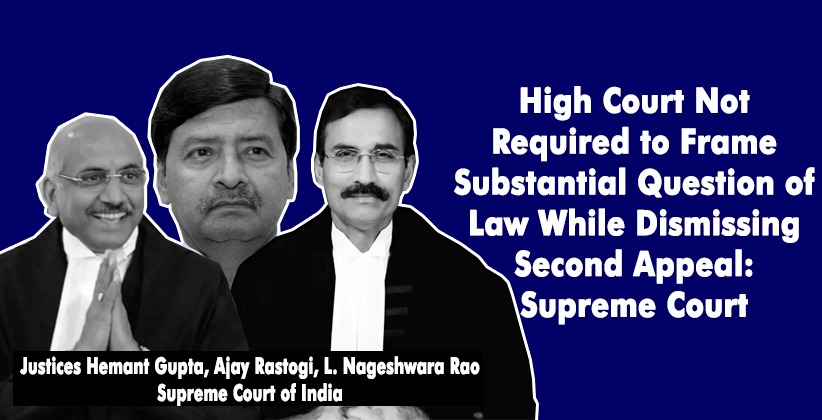The Supreme Court has observed that a High Court is not required to frame a substantial question of law while dismissing a second appeal.
The bench comprising Justices L. Nageshwara Rao, Hemant Gupta, and Ajay Rastogi observed, The formulation of a substantial question of law or reformulation of the same arises only if there are some questions of law and not in the absence of any substantial question of law. The contentions rose before the Apex Court in the appeal that the High Court dismissed the second appeal without framing any substantial question of law which is mandatory in terms of Section 100 of the CPC.
The bench observed, The Court has the power to hear an appeal on any other substantial question of law on the satisfaction of the conditions laid down in the proviso of Section 100 of the Code. Therefore, if the substantial question of law framed by the appellants is found to be arising in the case, only then the High Court is required to formulate the same for consideration. If no such question arises, it is not necessary for the High Court to frame any substantial question of law. The High Court is not obliged to frame the substantial question of law, in case, it finds no error in the findings recorded by the First Appellate Court.
Another issue raised in this case was that the provision of Section 28 of the Delhi Land Revenue Act, 1974 bars the jurisdiction of the Civil Court to entertain boundary disputes. The court by referring to this issue that the Land Revenue Act does not expressly bar the jurisdiction of 8 Civil Court in respect of boundary disputes. The boundary disputes are between two revenues estates and do not include the demarcation of the land of the parties.
It said, Still further, the suit is unconditionally allowed for an injunction based upon possession of the property. The said suit could be decided only by the Civil Court as there is no mechanism prescribed under the Land Revenue Act for grant of injunction in respect of disputes relating to possession. Since there is no implied or express bar of jurisdiction of the Civil Court in terms of Section 9 of the Code, the Civil Court has plenary jurisdiction to decide all disputes between the parties.






